October highlights!

Zurich Opera House, courtesy of David Biedert
In case you missed out on October episodes of Voice of FinTech podcast, here are the highlights:
Yova — Founder story: Make the world a better place and make money at the same time!
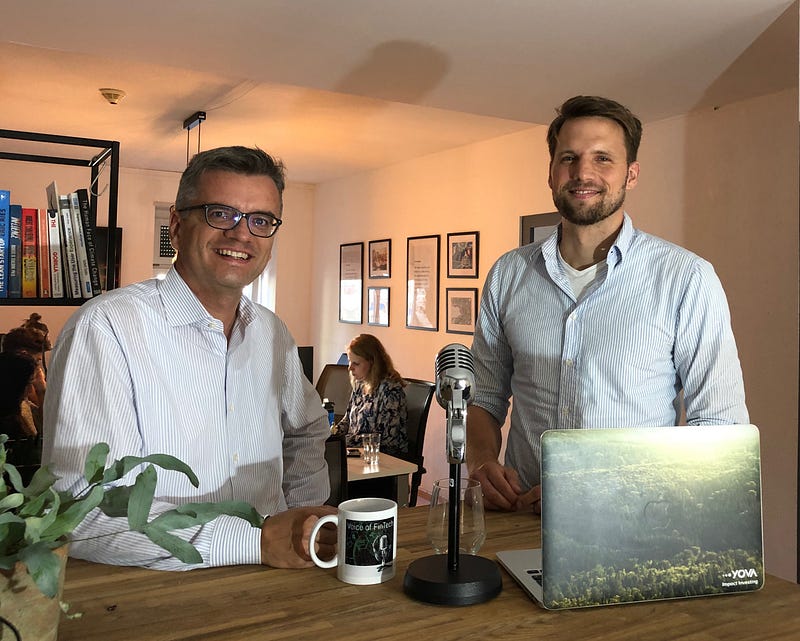
with Tillmann Lang
An interview with Tillmann Lang, CEO and co-founder of Yova. Yova is a platform for retail clients to invest in line with their values — Yova stands for Your Values! With Yova, individual clients can make sustainable and socially responsible investments effortlessly. At the beginning of the interview, I ask Tilmann: Why did you start Yova?
I’ve never really been excited about Finance and the reason is that I’ve always found Finance very frustrating. Once I got to a point in my life where I wanted to invest some money, I was quite frustrated with what I found out there. For many reasons, I always found degrading to talk to a bank where people were unwilling or unable to explain to me what I would actually invest in, and it all seemed overpriced!
Futurae Technologies — Founder story: When a dog is not enough to protect your assets!
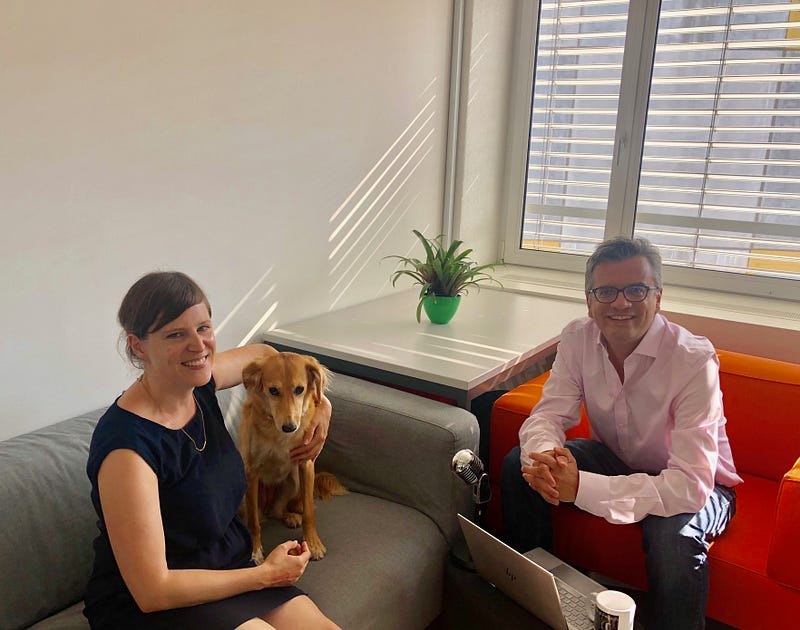
with Sandra Tobler
An interview with Sandra Tobler, co-founder and CEO of Futurae Technologies, Zurich based cybersecurity start-up. Futurae provides multi-factor authentication tools to corporate clients from the Financial Services, Insurance and Healthcare sectors.
In addition to describing the Futurae story, I also ask Sandra to compare the startup scene in Switzerland and Silicon Valley. Sandra explains that in her view, the technology that gets developed in both ecosystems is comparably innovative. Still, in the Bay Area, founders seem to have a bit less of the industry knowledge. Therefore especially in FinTech, businesses are often designed from scratch. Entrepreneurs develop their ventures that fundamentally disrupt the existing business models. On the other hand, in Switzerland, many people have worked in the incumbents, saw the anomalies, things that didn’t work and now they want to address these pieces of the puzzle but while staying within the system.
Furthermore, when you think about funding the startup growth, although there is now a lot more venture capital in Europe than in the past, there is still a much larger appetite for investing in the early-stage startups in the Bay Area. There, you can even pitch with a PowerPoint deck and raise 10 or 20 million for the first round, which is unthinkable in Switzerland. In Switzerland, you need to have market traction, you need to have reference customers, and the product that is working before you could even start discussing fundraising with anyone. Also, ticket sizes are a lot smaller. All in all, building a global player from Switzerland is very difficult because of the sheer market power that you can make out of the US as well!
IBM Innovation Ecosystem — Startup with IBM
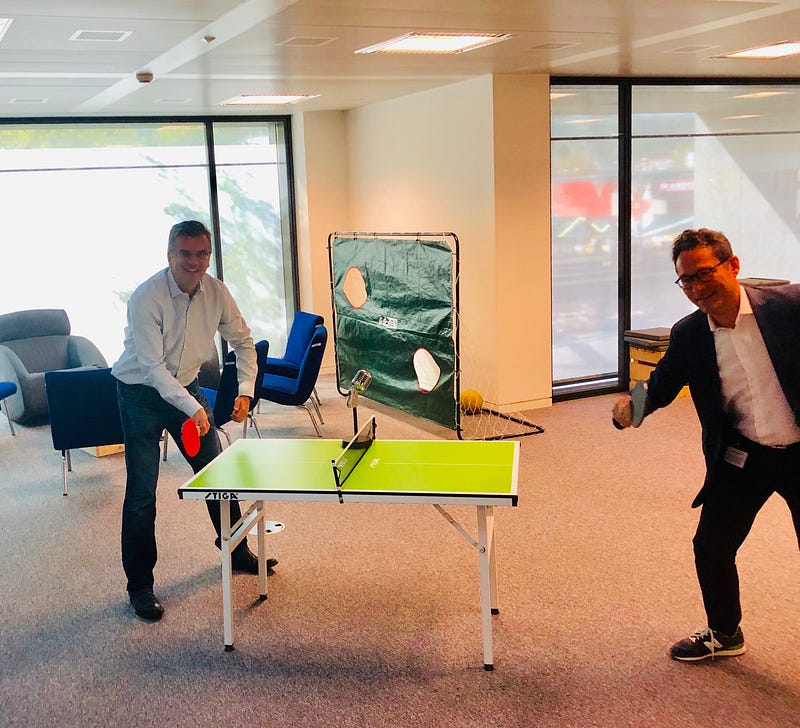
with Pascal Allot
An interview with Pascal Allot, IBM Innovation Ecosystem Director. We talk about what IBM offers startups in Switzerland to support them on their journey. We also discuss Big Tech’s interest in Financial Services and most likely areas of innovation focus related to FinTech.
Pascal describes his team’s mandate to promote innovation within IBM Switzerland and the innovation with its customers, especially the startups. For example, IBM provides the following resources or organizes activities: a) IBM runs a Design Thinking workshop for startups, where they bring startups to their IBM studio. b) IBM also provides credits to startups to use IBM technology. This can be up to USD 120k per year, so it’s a huge investment! c) Also, startups can get support from IBM to develop their MVP and also to make use of introductions to IBM’s traditional enterprise clients, which is especially relevant for B2B startups. d) IBM organizes various meet-ups, e.g., related to data sciences at their IBM Garage.
Singularity Group — Investing in exponential progress and innovation

with Evelyne Pflugi
An interview with Evelyne Pflugi, co-founder and Managing Partner at Singularity Group in Zurich, Switzerland. We talk about what are exponential technologies, relationship to the Singularity University, and how to make money from exponential technologies and innovation today.
Evelyne defines what exponential technologies are. These are the kind of technologies that change the world because they penetrate much faster than other technologies, and they grow exponentially. We also zoom in on how you make money out of these sorts of technologies today. Evelyne explains that the financial industry or the investment industry struggles with identifying where these exponential technologies end up, what will be the business models around them, and how they create value. Evelyne also outlines how you can better target investment opportunities using the research, know-how and investment approach that her team put together.
Soundbite: SwissCognitive — The Global AI Hub and We Shape Tech
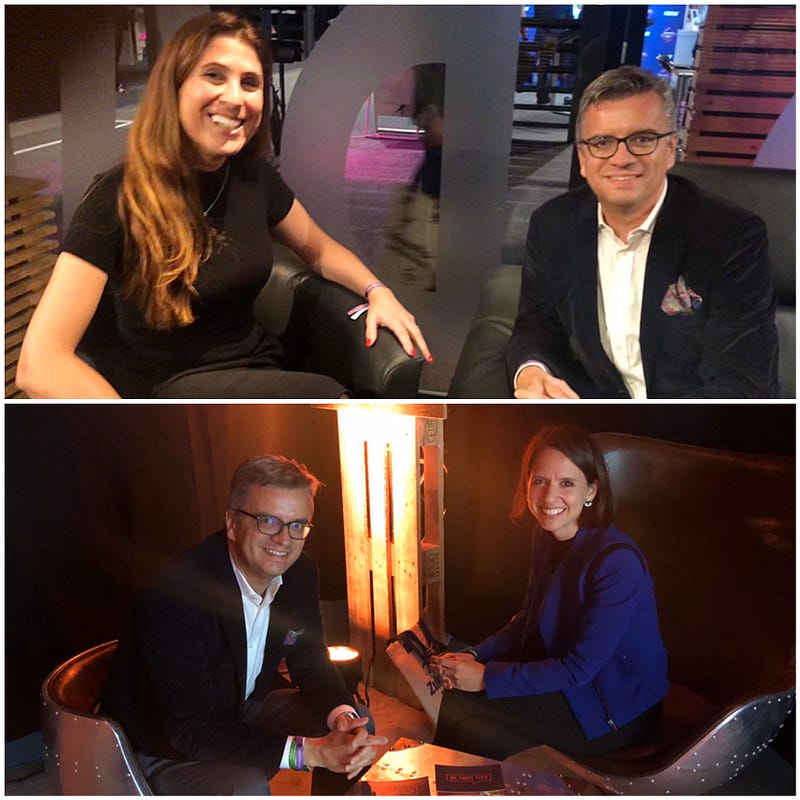
with Dalith Steiger-Gablinger and Melanie Gabriel
On the side of the Business Innovation Week in Zurich, we quickly caught up with Dalith Steiger-Gablinger, co-founder and Managing Partner of SwissCognitive — The Global AI Hub and Melanie Gabriel, Board member at We Shape Tech. We talk with Dalith about what cognitive technology means and with Melanie about We Shape Tech’s mission and activities to drive female participation in Tech and innovation to a 50/50 female/male ratio. Check out their awesome events on their website!
Dalith Steiger-Gablinger:
“When people think about cognitive technologies, mainly they think about robots, devices, and algorithms. When I think about cognitive technologies, I think about the human being. About how cognitive technologies can support us, and can augment the human brain.”
Loanboox — Founder story: Making raising big-ticket debt painless
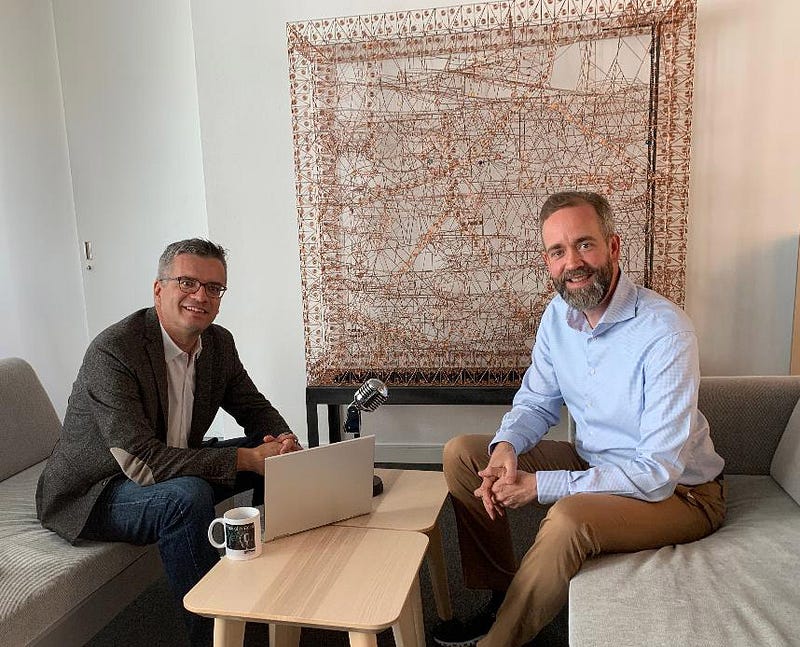
with Stefan Muehlemann
An interview with Stefan Muehlemann, founder and CEO of Loanboox, serial entrepreneur about why he believes in the power of platforms, why raising debt should not hurt and how he got started with his latest venture, Loanboox. Loanboox is a leading big-ticket debt capital market platform, based in Zurich, Switzerland, active in Switzerland, Germany, Austria, France and the Netherlands.
I ask Stefan about the beginnings, from an idea to a prototype to an MVP. Stefan explains his next steps after he had an idea for his platform:
Before I founded the company, I started to speak to potential clients. The survey that I did was with about 30 potential borrowers 30 institutional investors. When I got their feedback that this is something that they would love to see, I then tried to find somebody who would help me build a prototype. I did find one of my co-founders Dario, who is the CTO today, who at that time worked at a large company. He took a three-week holiday and kind of programmed 23 days through on that prototype. We spent many all-nighters here in the office discussing things, and in the end, Dario built a prototype for us, and then we showed it to the clients, and they loved it. It was an MVP, Minimum Viable Product, it was not fancy, it had all kinds of flaws, but the clients were able to give us feedback on it and then knew they’re willing to pay money for such a thing and that’s really where the business case lies.
If you have suggestions for topics or guests on the show or have ideas about how to make a podcast better for you, please e-mail us at info@voiceoffintech.com. Happy to hear from you!
